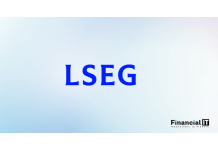Bloomberg Introduces Alternative Data Entitlements on...
- 30.01.2026 10:55 am
Flanks And finReg360 Launch EDX, Europe’s First...
- 19.01.2026 07:55 am
Rimes Announces Strategic Partnerships With PANTA,...
- 13.01.2026 02:05 pm
Integral Triples Capacity at Equinix SG1 Data Facility...
- 13.01.2026 12:50 pm
Fiserv Launches Unknown Shopper at NRF, Helping...
- 12.01.2026 07:25 am
Broadridge Completes Acquisition of Acolin, Unlocking...
- 06.01.2026 09:15 am
Experian Integrates Commercial Data Into Its Ascend...
- 05.01.2026 12:55 pm
Duco Partners with Phoenix Group to Modernise Data...
- 16.12.2025 10:15 am
Bloomberg Expands Pricing for Australian Bonds with...
- 18.11.2025 01:35 pm
Rimes Partners with Databricks to Deliver Managed Data...
- 18.11.2025 01:25 pm
BMLL Selected by EuroCTP to Supply Data Quality...
- 11.11.2025 12:45 pm
LSEG Expands Partnership with BlackRock, Strengthening...
- 30.10.2025 10:50 am






















